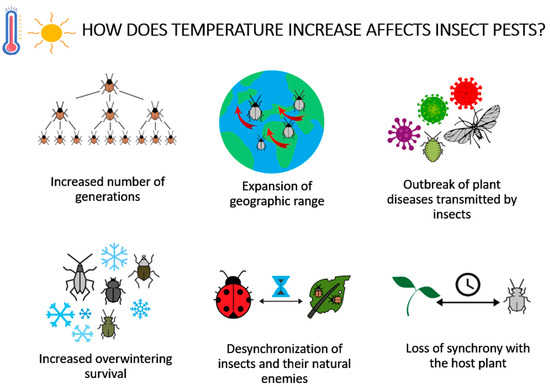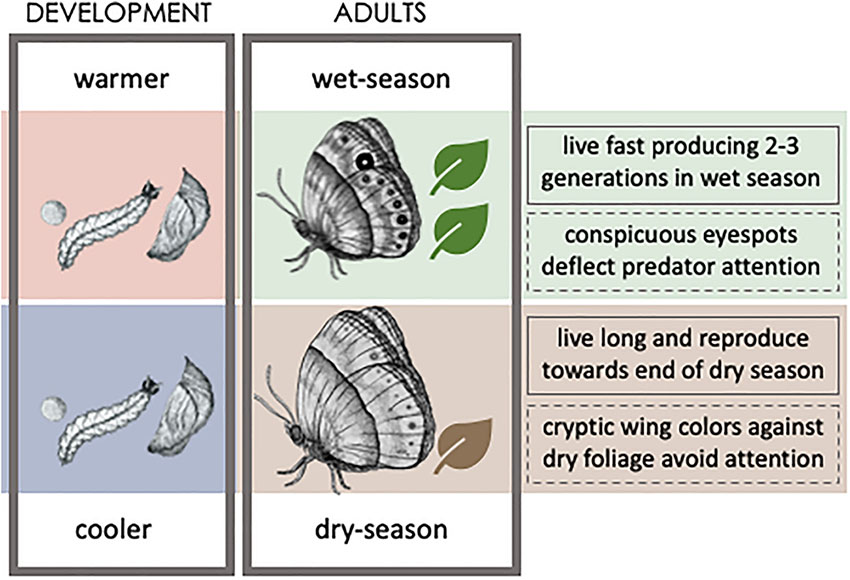Thermal Ecology Of Insects On And In Leaves

Thermal Ecology Of Insects On And In Leaves Youtube Our review shows that, apart from the stress response mediated by heat shock proteins, the physiological mechanisms of heat tolerance in insects remain poorly studied. based on life history theory, we discuss the costs of heat tolerance and the potential evolutionary mechanisms driving insect adaptations to high temperatures. (2) the use of thermal imagery to address a wide range of ecological and evolutionary questions, such as the distribution of thermal niches across the landscape and implications for the physiology and population biology of animals, microbes, and plants. (3) the use of thermal imagery to explore the potential impact of climate change on.

Insects Free Full Text Effects Of Fluctuating Thermal Regimes On All climate change scenarios predict an increase in both global temperature means and the magnitude of seasonal and diel temperature variation. the nonlinear relationship between temperature and biological processes means that fluctuating temperatures lead to physiological, life history, and ecological consequences for ectothermic insects that diverge from those predicted from constant. In some insect–plant relationships, the herbivore physically manipulates its proximate environment (i.e., plant tissues). however, little is known about the effects of this manipulation on the insect microclimate. we studied the thermal environment of the leaf mining insect phyllonorycter blancardella (lepidoptera: gracillariidae). The developmental response of insects to temperature is important in understanding the ecology of insect life histories. temperature dependent phenology models permit examination of the impacts of temperature on the geographical distributions, population dynamics and management of insects. the measu …. Here, we show that leaf shape acts as a physical deterrent against a leaf processing herbivore. plants in the genus isodon (lamiaceae) host a specialized leaf rolling weevil (apoderus praecellens.

Insects Free Full Text The Impact Of Climate Change On Agricultural The developmental response of insects to temperature is important in understanding the ecology of insect life histories. temperature dependent phenology models permit examination of the impacts of temperature on the geographical distributions, population dynamics and management of insects. the measu …. Here, we show that leaf shape acts as a physical deterrent against a leaf processing herbivore. plants in the genus isodon (lamiaceae) host a specialized leaf rolling weevil (apoderus praecellens. The thermal ecology of flowers is an exciting, yet understudied field of plant biology. scope: this review focuses on several attributes that modify exogenous heat absorption and retention in flowers. Obtaining an optimal flower temperature can be crucial for plant reproduction because temperature mediates flower growth and development, pollen and ovule viability, and influences pollinator visitation. the thermal ecology of flowers is an exciting, yet understudied field of plant biology.

Frontiers юааthermalюаб Plasticity In юааinsectsюабтащ Response To Climate Change The thermal ecology of flowers is an exciting, yet understudied field of plant biology. scope: this review focuses on several attributes that modify exogenous heat absorption and retention in flowers. Obtaining an optimal flower temperature can be crucial for plant reproduction because temperature mediates flower growth and development, pollen and ovule viability, and influences pollinator visitation. the thermal ecology of flowers is an exciting, yet understudied field of plant biology.

Comments are closed.